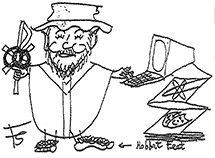Sir Peter Medawar was one of those scientists whose work has affected people all over the world. A specialist in biology, he developed theory and practice in immunology of great value, when we think of the transplants which have saved people’s lives and fortunes. The impression we have from his writing is that he was a decent and good man, as well as very intelligent.
Yet his understanding of Christian belief seems to have been based “on any standards of morals that human beings are accustomed to.” Writing of the Jesuit paleontologist Pierre Teilhard de Chardin, he regarded him as one of“the reverent who hope to find evidence of a Great Composer in the marvel of the whole symphonic texture of the natural process.”
He went on to explain that “there is no theological comfort in the ampliation of DNA and it is no use looking to evolution: the balance sheet of evolution has so closely written a debit column of all the blood and pain that goes into the natural process that not even the smoothest accountancy can make the transaction seem morally solvent according to any standards of morals that human beings are accustomed to.” [ “The Life of Science,” page 169]
This argument assumes that believers try to prove that the created world has some ordinary and comfortable moral balance. I can imagine “standards of morals “ being something the old boy (and old girl) network of the Medawars’ acquaintance would believe in according to their social class or club. Or I might hear them talking knowledgeably in a Senior Common Room!
The faithful approach to any universal morality from a Christian point of view must be to start with the self-emptying of God in Jesus Christ, described in the Letter to the Philippians:
Have this mind among you,
which is yours in Christ Jesus,
who, being in the form of God,
counted it not a prize to be
on an equality with God
but emptied himself,
taking the form of a servant, being made
in the likeness of human beings;
and being found in fashion as a human being,
he humbled himself,
and became obedient to death.
This self-offering by a God whose name is Love is a summation of pain and sorrow in the world, which with its overbalance of suffering and sacrifice, has no moral standing in the usual sense. God does not require human sacrifice, as has been thought in many early religions. Yet to give a blessing or to receive a blessing, is to partake of this self-emptying for the sake a beloved Other, which marks human biology and society.
The very word “bless” has deep within it the idea of sacrifice. The French word ”blesser” “to wound” is testimony, for both words come from a deep place in language including the word “blood”. The conjectural form is “*blodsian” - a blessing is given by the giving of blood, or personal essence. The same is true of the Latin roots of “sacred” and “sanctify” which are the roots of the French word “sang”(blood), from which we get “sanguinary” and “sanctuary.”
There is no normal accountancy to balance pain and sorrow against joy and pleasure. There is, rather, the continuing, abnormal, ambiguity in the language of blessing, giving and receiving, which is another mystery in the Equations of Love. At the root of the mystery is a creative Being who for the sake of Love has surrendered power to His, Her or It’s creation.
In this mystery of the Cross we find great sorrow. Today and in all the ages there have been terrible cruelty, torture and death, Yet Jesus said to the women of Jerusalem “Do not weep for me, weep for yourselves.” All humankind has suffered whether from natural disasters or human evil. Yet as Judas left the last supper to betray Jesus, Jesus said “Now is the Son of man glorified” The finality of Good Friday is not the finality of death, but the finality of God’s accomplishment of total human accomplishment. Jesus’ words “It is finished” mean, that the work of God is brought to achievement: the final mystery of the Cross is the gift of new life for the whole creation, a spiritual fulfillment of the gift of existence to the universe.

